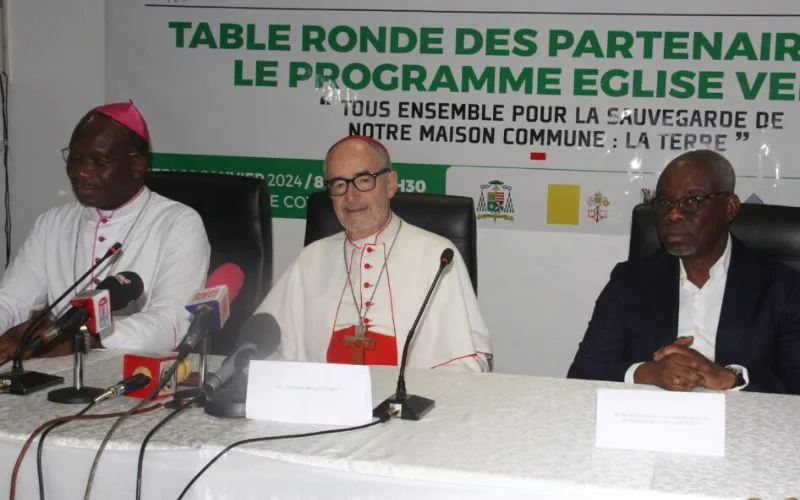He said, “The Church will do what falls within its mission and strive to set an example by acting in a way that is consistent with what is taught in Laudato Si' and, within the framework of synergy, the Church will thus facilitate the task of the State, which is ultimately responsible for management.”
The Vatican-based Cardinal lauded the Green Church Program as an initiative whose objectives and strategies have been formulated with inspiration from Laudato Si'.
“To contextualize these objectives, the Church of Benin has chosen to focus on two axes. On the one hand, environmental education, in particular waste management and the training of pastoral agents and those working in diocesan structures; on the other, environmental, and ecological promotion, highlighting the promotion of renewable energies and the ecological development of diocesan spaces and structures to combat climate change,” he explained.
The 77-year-old Czechian member of the Society of Jesus (Jesuits) went on to highlight some of the targets of the Green Church Program, saying, “Work will be carried out with pastoral agents, schools and health structures, as well as the people working in them.”
“The Church in Benin has chosen to reach out directly or indirectly to families, parishes, dioceses, schools and universities, healthcare structures, lay movements, the economic sector, religious circles, etc. These different targets are all key players in the fight against climate change,” he added.
The Vatican-based Cardinal further said, “These different targets are potential waste producers and energy consumers. At the same time, they are subjects concerned by the quest to achieve the Sustainable Development Goals (SDGs), including the fight against poverty, the fight against hunger.”
In the attempts to achieve the SDGs, he said, the highlighted targets work towards “universal access to drinking water, sustainable cities and communities, and so on.”
Acknowledging the “peaceful cohabitation between believers – Christians, Muslims, Voodoo practitioners and all others”, Cardinal Czerny said, “It is my humble conviction that the training and awareness-raising modules that will be produced will not be in contradiction with the ethical values shared with other religions and with the prescriptions of the country's laws.”
One possible challenging reality of the Green Church Program will be “waste management”, the Cardinal said, giving the example of “the sanitation chain that runs from the individual to the State, via the various administrative and social structures.”
“If the individual doesn't know how to dispose of the banana peel and the plastic bottle in the right place, the result is a mixture of waste that is difficult to manage,” he warned.








